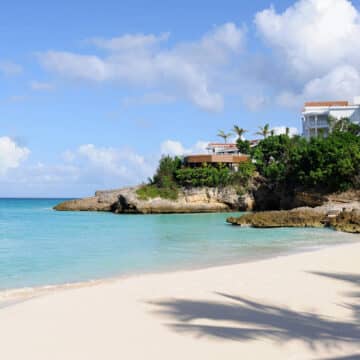Op-Ed: The United States and Sugar Policy in the Caribbean
By Isabel Wees
Op-Ed Contributor
In 2001, President George W Bush launched the Caribbean Third Border Initiative with the countries of the Caribbean “to make sure the benefits of globalization are felt in even the smallest economies.”
The Third Border Initiative is designed to enhance diplomatic, economic, and law enforcement collaboration between the United States and its Caribbean neighbors, the often overlooked “third border”. Yet, the US maintains its protectionist policies on sugar to the detriment of both US consumers and Caribbean nations.
Sugar is the most highly controlled agricultural commodity in America with the current US policy focusing on 3 main areas: price supports through loan agreements, domestic market controls, and tariff-rate quotas (TRQ).
Among the details of its sugar policy are provisions which allow the US government to sell excess sugar to ethanol producers at a significant loss of up to 10 cents per pound, allowing the government to utilize excess sugar, should sugar prices be substantially low, according to Sugarcane.org.
While Mexico and the Dominican Republic are allowed to provide the US with a limited amount of sugar with a very small duty as part of the North American Free Trade Agreement (NAFTA) and Central American Free Trade Agreement (CAFTA), other Caribbean and Latin American countries are not allowed such privileges.
Of concern to Americans should be that the US federal government provides as much as $25 billion per year to large agribusinesses.
Senator Jeane Shaheen, Rep. Richard Lugar and Senator Pat Toomey estimate that the current sugar price support program costs US consumers and businesses around $3.5-$4.5 billion and 20,000 jobs each year, based on data from the Consumer Federation of America and National Consumers League.
This is because American manufacturers reportedly pay double the world’s average price for sugar.
According to a 2006 Commerce Department study, for every sugar-growing job saved through high sugar prices, approximately three manufacturing jobs are lost.
According to Bilal Maneka, Research Associate at the Council on Hemispheric Affairs, “Sugar subsidies and protectionist policies demonstrate quintessential special interest lobbying, and result in a generous but largely undeserved gift to well-connected economic interests.”
These sugar quotas have not only had a negative effect on American consumers, they have adversely affected the sugar economies of Latin American and Caribbean.
Many of the Caribbean’s sugar industries have collapsed. If continued, the US policies that restrict sugar imports from struggling Caribbean markets could damage US foreign relations with Latin American and Caribbean countries.
The sugar industries in Guyana, Jamaica, Barbados, Trinidad, and Belize are struggling financially, and find it difficult to export sugar due to the US sugar policies and farm subsidies.
“In fact, the reason that the world price of sugar is at a historical low right now is because the United States and the European Union have driven down the global price for sugar by imposing trade restrictions on foreign imports,” Maneka says in his piece.
Therefore, sugar produced by countries not allowed to trade with the US and the EU floods the market and lowers the average price.
In 2003, Caroni Ltd., the Trinidad state-owned sugar company, laid off its workers and stopped producing sugar. As part of the 8,000 employees’ separation agreements, Caroni split its sugarcane-producing land among the workers for residential lots as well as two-acre farming plots.
While these distributions are still in progress, they make it impossible for Caroni to ever reopen and resume production.
Tropical and naturally fertile, Caribbean islands have the perfect weather conditions for producing sugar.
Before the rise of the petroleum industry, Trinidad’s economy had always been dominated by agriculture.
“There is more to it than the closure of Caroni. This is a country where if you stick your finger in the ground it will grow,” Trinidad Transport Minister Stephen Cadiz said at the time. “We have been farmers for centuries — all agriculture. We ate locally. Now, US$600 million worth of food is imported.”
The closing of Caroni has also harmed the citrus juice industry, which now must import from Belize.
In addition, Angostura, which produces world famous aromatic bitters, used to flavor foods and alcoholic beverages, now has to grow 17,000 acres of sugar cane in Barbados, which was previously supplied by Caroni (http://www.trinidadandtobagonews.com/blog/?p=7553).
In spite of Trinidad’s oil revenues, the loss of Caroni has increased unemployment significantly. In turn, it leaves the country more vulnerable illegal activities such as drug trafficking and the related revenue it generates to give structure to their economy. The US has a vested interest in maintaining strong economies along the Third Border.
Some may argue that, in a globalized world, Caribbean countries can market their sugar to other large countries besides the US.
Unfortunately, most European sugar policies are very similar to that of the United States with large agricultural subsidies.
The Caribbean, historically, benefited from these subsidies. However, the EU has imposed a 36 percent cut in sugar subsidies for producers from the Caribbean, Africa, and the Pacific.
This was because of a complaint to the World Trade Organization over this practice under which the EU gave former colonies preferential treatment to encourage development.
This cut, along with geography, has put Caribbean sugar producers in an unenviable position. It would not be profitable for small Caribbean economies to export sugar, a nondurable commodity, across the globe because of high shipping costs.
It would make more sense for African countries to export to Europe while Caribbean countries can more efficiently export to the United States.
In the mid-1980s, New Zealand took an innovative step and eliminated all of its agriculture subsidies.
Although controversial at the time, it has allowed for the development of better technology in its farming sector, greater foreign competition, and innovation within the agricultural industry.
Today, New Zealand has become a large exporter of agricultural products throughout the world.
The US should use the example of New Zealand to understand that change is not bad and can lead to improvements.
If the United States does not revise its sugar policy and allow for free trade, another world power, such as China, may see the opportunities afforded by the sugar producing Caribbean and step in with assistance. Indeed, it has already gotten involved with the sugar industry in Jamaica.
Increasingly, Chinese businesses are taking hold in this region and becoming part owners in many ventures. China has invested in a sugar factory in Guyana and has partnered with the state-owned sugar company.
As this venture becomes successful, more and more Caribbean nations may become partners with the Chinese. It would be wise for the United States to take a second look at the effect of its sugar policies on its neighbours in the Caribbean for the benefit of both parties.
Note: the opinions expressed in Caribbean Journal Op-Eds are those of the author and do not necessarily reflect the views of the Caribbean Journal.
Works Cited
Jankie, Ariti. “Caroni Ltd in Waiting.” Trinidad Express Newspaper. One Caribbean, 18 July 2010. Web. 09 Oct. 2013.
Kays, Laurel. “US Sugar Policy: Not So Sweet for the Economy.” Americans for Tax Reform. Braynard Group, Inc., 13 Aug. 2012. Web. 09 Oct. 2013.
Lotterman, Edward. “Real World Economics: Nothing Sweet in U.S. Sugar Policies.”TwinCities.com. Pioneer Press, 22 June 2013. Web. 09 Oct. 2013.
Maneka, Bilal. “U.S Sugar Subsidies and the Caribbean’s Sugar Economies.” COHA.org. Council on Hemispheric Affairs, 31 July 2013. Web. 09 Oct. 2013.
Shaheen, Jeanne, Dick Lugar, and Pat Toomey. “Sugar Subsidies out of Date.” TheHill.com. Capitol Hill Publishing Corp, 07 Aug. 2012. Web. 09 Oct. 2013.
“That Sickening Sugar Subsidy.” Bloomberg.com. BLOOMBERG L.P., 13 Mar. 2013. Web. 09 Oct. 2013.
“The Caribbean Sugar Industry: Sweet and Sour.” The Economist. N.p., 28 Aug. 2003. Web. 09 Oct. 2013.
“Trinidad and Tobago 2013 Crime and Safety Report.” OSAC. United States Department of State, Bureau of Diplomatic Security, 29 Jan. 2013. Web. 09 Oct. 2013.
“U.S. Sugar Policy.” SugarCane.org. UNICA, 2013. Web. 09 Oct. 2013.







